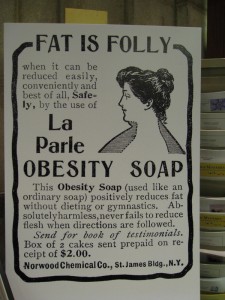
There’s a lot of talk going around these days about how the Book is dead. Or at least on its way out, drummed into the dust by the chattering hordes of hi-tech gadgets that make the act of turning paper pages seem quaint, not to mention ecologically incorrect.
But for those of us who still thrill to the whisper of the turning page, there remain a few bastions of the printed word where books get some respect. The Library of Congress covers three blocks right behind the Capitol, where politicians and news makers fill the air with their boasts and claims of knowledge and virtue. But inside the Library, the atmosphere has the hushed gravity of a cathedral, and the workers scuttle through the miles of stacks with the quiet reverence of acolytes to a higher god.
You can almost feel Wisdom floating in the air.

For a bookworm like me, it’s an exciting place. I have been visiting libraries all my life, never happier than when wandering the stacks, inhaling that slightly musty scent of old books.
In Seattle the library system is terrific, with well-designed branches all over town which use the newest technologies to share their collections. And the city’s flagship Central library is a stunning work of modern architecture by Rem Koolhaas, its soaring glass walls reflecting the city lights like a beacon of progress.Inside, bright colors and modern art distinguish the many floors linked by a clever system of escalators and ramps that carry patrons up through the building. It’s a marvel, and, though still a source of some controversy, it draws thousands of tourists each year who come to see the building even if they don’t read much.
By the same token, tourists to the nation’s capitol visit the Library of Congress because in its vast collections it holds some of the most famous and revered documents of our country, as well as some unexpected treasures. The Guttenberg Bible is there, for instance. And there’s also an amazing collection of rare musical instruments, recordings and newspapers.
Naturally, the architecture reflects the classical tradition, with magnificent ceilings embellished with allegorical art and breathtaking stonework.You could get a crick in your neck trying to read the ceilings alone. It’s all fairly wonderful.
But not everyone who visits the LoC cares about the building or the books. When I was there this week enjoying a kind of behind the scenes tour with a friend who works there, we came upon a group of young visitors, maybe high school age, who bustled into the lofty entry area of the main building. They gazed around restlessly, clearly not overly impressed by the gilding, the mosaics or the quotations on the walls. After a few seconds one of them, noticing my friend’s badge, asked if she could tell them where the “secret room” was. She shook her head and replied, “Did you lose your guide?”
The guy nodded and said, “But you work here. Can’t you tell us where it is?”
“Do you mean the Dan Brown book?” she asked.
The guy nodded again. My friend told them to wait for their guide, who would be able to answer their questions.
She told me as we moved on that interest in The DaVinci Code has led to an influx of visitors whose passion for books is perhaps not as keen as their passion for hot topics.
Still. They came to the library. That’s a start.
The power of words, to lead or mislead, to inspire love or hate, to clarify or obfuscate, remains. Some people choose to live their lives according to the words of one book or another. Yet, much as I love words and books, I’m not sure that relying on one book is the best idea, no matter how old or how respected that book may be. It’s a big universe. Ours is a small planet. One book may be enough to change the world, but if we hope to save it, I think we’d do well to read more.
A lot more.




